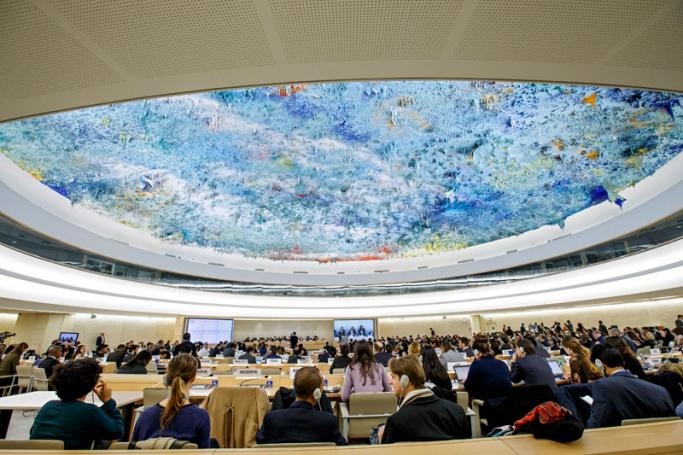UN member states said Tuesday that Myanmar was likely committing "crimes against humanity" against its Rohingya minority, while the UN rights chief voiced alarm over possible "elements of genocide".
Following a special session of the UN Human Rights Council, the nations overwhelmingly voted in favour of a resolution expressing grave concern over widespread abuses committed against the largely Muslim minority.
Thirty-three of the council's 47 members backed the text listing a long line of horrific abuses, including summary killings of children, rape, torture and large-scale forced displacement, which it said indicated "the very likely commission of crimes against humanity."
An army-led crackdown has forced some 626,000 people to flee from northern Rakhine state and across the border into squalid camps in Bangladesh in recent months, leaving hundreds of villages burned to the ground.
Myanmar's military vehemently denies accusations by the UN and US that it has committed ethnic cleansing against the Rohingya.
But in his address to Tuesday's special council session, UN High Commissioner for Human Rights Zeid Ra'ad Al Hussein went even further.
Pointing to the vast array of known abuses, "the burning of houses with families inside", he asked: "Can anyone rule out that elements of genocide may be present?"
- 'Shockingly brutal' -
Myanmar's ambassador to the UN in Geneva, Htin Lynn, slammed the resolution adopted Tuesday, decrying it as "unethical and unprofessional" and as "infringing on the state sovereignty of Myanmar."
The resolution calls on Myanmar to "address the root causes" of the Rohingya crisis, and to fully cooperate with the different UN bodies, providing full access to investigators and humanitarian workers.
It also asked Zeid's office to track progress in the country and to provide regular updates to the council and submit a full report by March 2019.
Rights advocates hailed the resolution.
"Today the UN's top human rights body has sent the strong message to the government that the world will not turn away, it will not avert its gaze, it will not forget," Laila Matar of Human Rights Watch said in a statement.
But the text did not go as far as Zeid had hoped.
He had urged the council to ask the UN General Assembly to launch a new "impartial and independent mechanism", to work alongside a fact-finding mission already dispatched by his office.
In March the rights council approved the fact-finding mission to investigate alleged crimes by security forces, particularly in Rakhine.
But Myanmar has refused to cooperate and has blocked access to the team of investigators, who have begun their work outside the country.
Htin Lynn on Tuesday said that the country's position towards the fact-finding mission "remains unchanged".
Bangladesh, which along with Saudi Arabia had requested the special session, meanwhile voiced disappointment that Tuesday's resolution was not adopted by consensus, given the severity of the crisis.
Bangladeshi Foreign Minister Shahriar Alam warned that the massive exodus over such a short period was "comparable only with the exodus following the 1994 Rwanda genocide".
After months of wrangling, Myanmar and Bangladesh signed a deal on November 23 to start repatriating refugees within two months. But rights groups say the conditions are not in place to ensure safe, voluntary and dignified returns.
© AFP
You are viewing the old site.
Please update your bookmark to https://eng.mizzima.com.
Mizzima Weekly Magazine Issue...
14 December 2023
New UK Burma sanctions welcome...
13 December 2023
Spring Revolution Daily News f...
13 December 2023
Spring Revolution Daily News f...
12 December 2023
Spring Revolution Daily News f...
11 December 2023
Spring Revolution Daily News f...
08 December 2023
Spring Revolution Daily News f...
07 December 2023
Diaspora journalists increasin...
07 December 2023
Naungcho to be transformed into tourist destination












